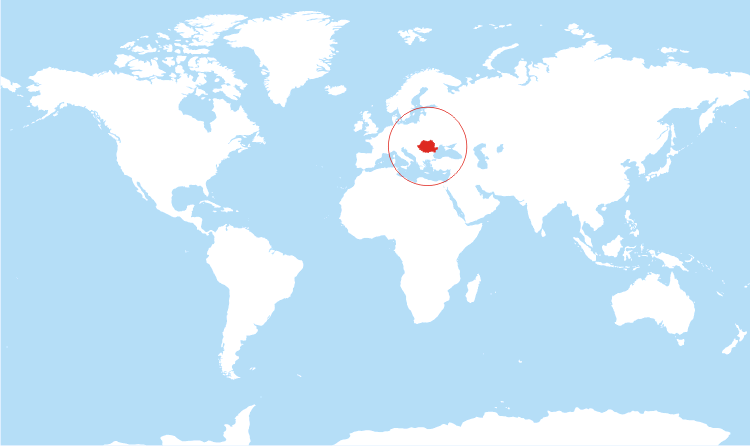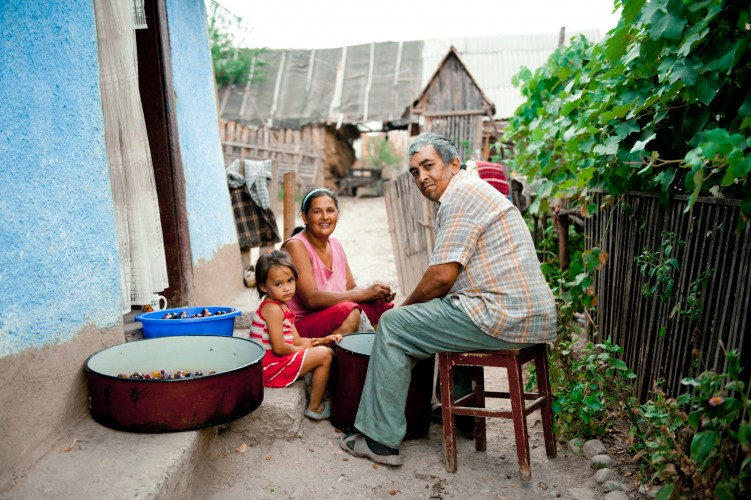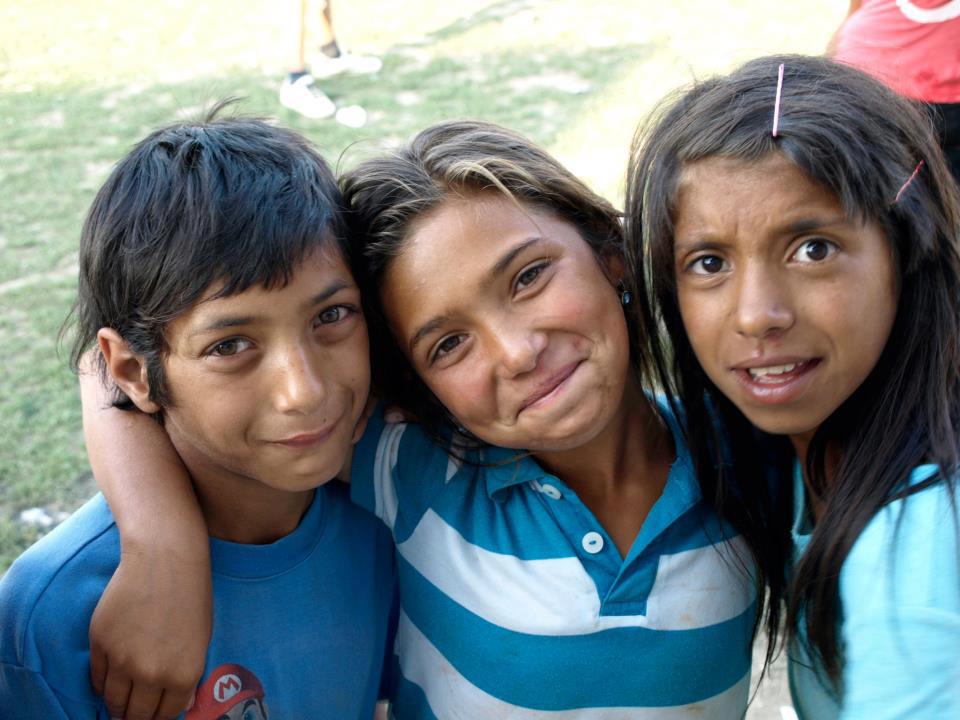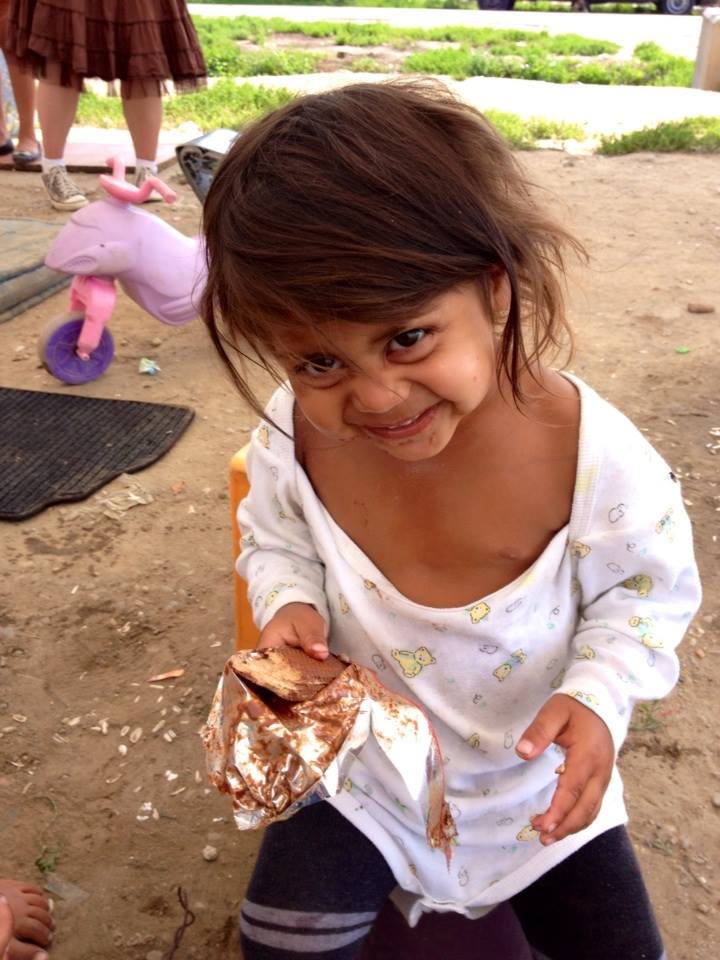Our Field

ROMANIA
When I talk about the country of Romania to Americans, most people think of gymnastics, Dracula, or orphans. While these topics give a distinction of what Romania is like for most Americans, they aren’t a true picture of the country that we have come to know and love.
Romania is an Eastern European country about the size of Oregon with a population of about 19 million souls. It’s capital is Bucharest, known as “Little Paris” because of it’s historical and elegant architecture. With 3 million people, Bucharest is economically the most prosperous city in Romania and one of the main industrial centers and transportation hubs of Eastern Europe. The majority of Romania though is primarily rural and poor. Although, areas are becoming more urban as the country is adapting to the western world of modernization. It’s an interesting mix of old and new, farm and city. Finding a 300 year old church, a steel or glass office building and Communist era apartment blocks next to one another is a common sight. Its also common to see farmers herding their cows or sheep to graze in public parks, along with the regular horse-drawn wagon on the main roads. What’s most appealing to my eye, is it’s country side. Endless hills of hay fields, small home gardens, and wooden churches are all very familiar and welcoming here.
Uncommon to the rest of the world, most Romanians LOVE Americans. No matter where I traveled in Romania, once discovered that I was American, I was a celebrity. Pictures were taken, email addresses exchanged and facebook friend requests were sent.

Romanians are not only very friendly but they are also a giving and hospitable people. It’s a part of their culture to give out of the little that they have.
There was one particular gypsy church that whenever I visited, I always left with a cheap bracelet. The first time I went I sat next to a young teen girl, Elena. I gave the normal polite greeting to everyone including her, but because I sat next to her without prejudice, (she was a gypsy) I suppose that was what made the difference. Before I walked out to leave, she turned to face me and put a bracelet in my hand. I smiled and thanked her, not knowing what else to do. I had nothing to give her in return, but that was not expected. I was unprepared the second time I came and again she would not let me leave without another juvenile bracelet. Not knowing when we would visit again, I bought her a candy bar and kept it with me until we returned and I was able to give it to her. In America, it is known as generous to give out of ones prosperity but Romania has taught me that true generosity is giving out of ones poverty. Much like the old widow who gave just two mites, but it was all she had.
The average Romanian only makes around $5,000 a year while the average American makes about $40,000 a year. It’s true, most Americans have no idea how good we have it in our country and most Americans have no idea how poor poverty truly is. I know I didn’t realize it, until I saw what little money most Romanians live on.
Romania has a greater spiritual need than economical. Romania needs Christ! 80% of Romanians are a part of the Orthodox or Catholic church. Meaning most Romanians are very religious. They go to mass, pray, and cross themselves when they see a crucifix outside a church. But it is only surface deep. They do not let the truth of the gospel affect their hearts and lives. They don’t understand that the crucifix they cross themselves to is the picture of what Christ did to save our souls. His death on the cross was the atonement for our sins. But because they are bogged down by the traditions of men, they completely pass over this simple truth that is the cornerstone of God’s grace and mercy for the world.
It’s clear that Romania is a field ready for harvest. Please pray that God will send more laborers for the harvest!

ROMA GYPSIES
My heart beat and most heaviest burden in Romania is for the Roma gypsies. I never understood how wealthy America is or what true poverty looks like until I visited my first gypsy village. The Romanians compare the gypsies’ poverty to Africa and this is the only way I can describe it too. We’ve worked in several gypsy church plants in Romania. The village of Pomi is one of the poorest that I have experienced to date. Their homes looked thrown together with scrap wood and cement bricks. The village it self just recieved eletricity in 2018! Many of the children run around unclothed and bearfoot. In the summer, that was not an uncommon sight, but when winter came and temperatures were well below zero degrees Fahrenheit, the children were still without shoes and poorly dressed. Someone once explained to me that the gypsy’s poverty is actually worse than Africa, because “Africa does not have winter.” Since then, through support of churches we have made sure all the children have heavy jackets and shoes for Romania’s harsh winters. Because these people are poor and uneducated, many do not have hope for a better life.
Knowing that no one should live in these conditions. I had to ask myself, why? Romania is not a third world country. Why are these people living this way? Why are they so poor? Why do they not have jobs? Why is it so hard for their children to go to school? Why does it seem like no one cares for them? A Romanian’s response would simply be, “because they are gypsy.” “Why do you care? They are lazy and worthless. They choose this life.”
Do they really? or do they choose this kind of life because it is the only life they know?
There are legitimate reasons for this animosity toward gypsies. Stereotypical Roma gypsies are nomadic with horses and caravans. They are known to be called swindling, drunkard, dancing, thieves. They’re known to cause problems and are a hated people wherever they go.

However, the more I work with gypsies the more I see that many do not fit the stereotype. I know many Roma gypsies in Romania, who have surmounted over society’s hatred toward them and have become fairly well off with honest work. They still face daily prejudices as they are the small minority but they are a ray of hope.
Romania is growing and the country is quickly conforming to the western world’s culture but many gypsies live in poverity without hope of a better life. So far, we have only been able to help them with their immediate spiritual and physical needs. But, not only do they need to be evangelized; they also need to be educated. How can they grow in Christ if they don’t know how to read their own Bibles?

Our desire and goal in Romania is to not only to evanglize and start churches, but also to teach and raise up nationals in the Lord’s service. If we teach them to read and write, this could also start a spreading of the gospel and give the next generation a chance to live a purposeful life. The one that Jesus speaks of in John 10:10, “I am come that they might have life, and that they might have it more abundantly.”
As a child in America, I was always encouraged that I could grow up to be whatever I wanted in life- a doctor, teacher, scientist, or even President. I had a choice. Won’t you help us give these gypsies a choice for a better life? Please pray with us in the possibilities of how you can help.
